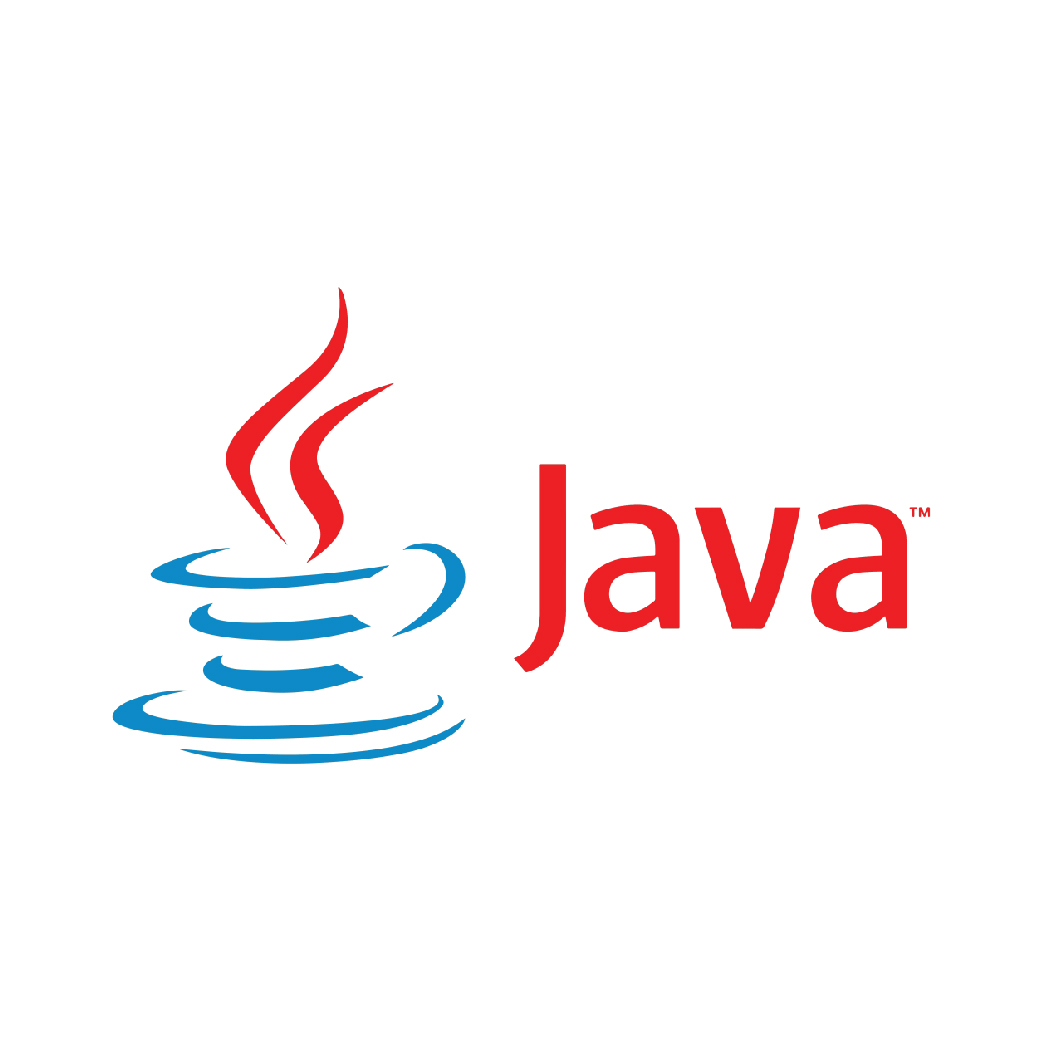What Does a Java Developer Do? A Comprehensive Guide
Unraveling the Java Developer’s Universe: Exploring Roles and Responsibilities

Everything you need to know about
What Does a Java Developer Do?
In today’s technology-driven world, software development is vital, and Java remains one of the most popular programming languages used in the industry (https://sonatafy.com/is-java-still-used/). Java developers are crucial in creating robust and scalable applications that power various domains, from web development to mobile apps and enterprise solutions. In this article, we’ll delve into the world of Java developers, exploring their responsibilities, skills, and the impact they have on the software development landscape.
Introduction to Java Development:
Java is a versatile and widely-used object-oriented programming language first released by Sun Microsystems in 1996. Since then, it has become a powerful language for various applications, making it a favorite choice for developers and organizations. As a Java developer, your primary focus is building, testing, and maintaining Java-based applications, ensuring they meet client requirements and industry standards (1).
” Java developers often work with web developers, engineers, programmers, and testers throughout the product life cycle.”
– Best Colleges
The Role of a Java Developer:
The role of a Java developer revolves around designing, developing, testing, and maintaining Java-based applications. Java developers are responsible for creating software solutions that meet the specific requirements of their clients or organizations. They work on various projects, from web and mobile applications to backend systems and enterprise software. The key responsibilities of a Java developer include:
Our Executive Team
- Software Development: Writing clean, efficient, and maintainable code in Java to build applications that meet business or project requirements. This involves implementing software designs, algorithms, and data structures.
- Java Frameworks and Libraries: Using popular Java frameworks and libraries to expedite development and leverage pre-built modules for standard functionalities. Common frameworks include Spring, Hibernate, and JavaServer Faces (JSF).
- Web Development: Building web applications using Java technologies such as JavaServer Pages (JSP), Servlets, and other web frameworks. Java developers often use HTML, CSS, and JavaScript for front-end development.
- Backend Development: Developing server-side logic and APIs that handle data processing, business logic, and database interactions. Java developers work with relational databases (e.g., MySQL, PostgreSQL) and NoSQL (e.g., MongoDB).
- Integration and Interoperability: Integrating Java applications with other systems, databases, and third-party APIs to create seamless and efficient solutions.
- Testing and Debugging: Conduct unit testing, integration testing, and other software testing processes to ensure the quality and reliability of the software. Java developers also identify and fix bugs and issues during the debugging process.
- Performance Optimization: Identifying performance bottlenecks and optimizing Java code for improved efficiency and response times. Java developers may also work on optimizing database queries and improving system scalability.
- Version Control and Collaboration: Using version control systems like Git to manage code changes, collaborate with team members, and ensure a smooth development workflow.
- Continuous Learning: Staying updated with the latest Java advancements, best practices, and industry trends. Java developers continuously learn new frameworks, libraries, and technologies to enhance their skills.
- Troubleshooting and Support: Providing technical support and troubleshooting assistance to end-users or clients to resolve issues with the software.
- Code Reviews and Documentation: Participating in code reviews to maintain code quality, adhere to coding standards, and document code and software features to ensure clear understanding and maintainability.
- Security: Implementing security measures to protect sensitive data and prevent vulnerabilities in Java applications.
Java developers play a vital role in creating software solutions that drive businesses and address various technological challenges. They collaborate with cross-functional teams, including other developers, testers, designers, and project managers, to deliver high-quality applications that meet the needs of clients or end-users. The role of a Java developer requires a combination of technical skills, problem-solving abilities, and effective communication to succeed in delivering successful software projects.

Common Industries we provide Java Developer Services:
Healthcare & Life Sciences
SaaS & Information Services
Manufacturing
Financial Services & FinTech
Retail & E-Commerce
Insurance
Logistics & Automotive
Travel & Hospitality
The most important for
things about the Java Developer
Application Development
Java developers are responsible for writing, testing, and deploying Java applications. They use Java programming skills to design and implement software solutions that cater to specific business needs (2).
“Integrates applications by designing database architecture and server scripting; studying and establishing connectivity with network systems, search engines, and information servers.”
– Oracle
Code Review and Optimization
Java developers review and optimize the code their peers write for better performance and maintainability. They identify and resolve any bugs or issues in the codebase.
Collaboration
Java developers often work as part of a team, collaborating with other developers, designers, and stakeholders to ensure smooth project execution.
Software Testing
Java developers are involved in unit and integration testing to ensure the software functions as expected and meet quality standards.
Debugging and Troubleshooting
When issues arise in the software, Java developers are responsible for diagnosing and fixing them promptly.
Application Maintenance
Java developers also maintain Java applications, ensuring they remain up-to-date and function smoothly.


Common Industries we provide Java Developer Services:

COST-EFFECTIVE DEVELOPERS
Our Software Developers and Engineers cost
on average $45 to $65 per hour

HIGHEST QUALITY DEDICATED TEAMS
Access to the TOP 1% of Nearshore Software Development resources in Latin America

TIME SENSITIVE DEVELOPMENT
Sonatafy’s Nearshore Talent Acquisition can place qualified Software Engineering teams in as quick as 2 weeks
Skills and Qualifications
of a Java Developer:
Proficiency in Java
Java developers must have a strong command of the Java programming language, including core concepts, data structures, and algorithms.
Object-Oriented Programming (OOP)
A deep understanding of object-oriented programming principles is crucial for effective Java development.
Frameworks and Libraries
Familiarity with popular Java frameworks like Spring, Hibernate, and JavaFX is essential for building scalable and efficient applications.
Database Management
Java developers often work with databases, so knowledge of SQL and database management systems (DBMS) is valuable.
Web Technologies
Java developers should be well-versed in web technologies like HTML, CSS, and JavaScript for web development projects.
Version Control
Proficiency in version control systems like Git is necessary for collaborating with teams and managing code changes.
Problem-Solving Skills
Java developers should possess strong problem-solving and analytical abilities to tackle complex programming challenges.

Interested In Working With Sonatafy?
Different Paths for
Java Developers:
As a Java developer, you have various career paths and opportunities to explore based on your interests, skills, and career goals. Some of the common routes for Java developers include:
- Java Software Engineer/Developer: This is Java developers’ most straightforward career path. As a Java software engineer, you will be responsible for designing, developing, testing, and maintaining Java-based applications. You can work on various projects, from web applications to enterprise software.
- Android App Developer: If you enjoy mobile app development, you can specialize in Android app development using Java and the Android SDK. Android developers create native apps for smartphones, tablets, and other Android-powered devices.
- Java Web Developer: As a Java web developer, you focus on building web applications using Java-based technologies like JavaServer Pages (JSP), Servlets, Spring, and other web frameworks. You might work on e-commerce platforms, content management systems, or enterprise web applications.
- Java Backend Developer: Backend developers primarily work on the server side of applications, handling data storage, processing, and business logic. You’ll work with databases, RESTful APIs, and other technologies that power the server side of web and mobile applications.
- Java Full-stack Developer: Full-stack developers have front and back-end expertise. They can work on the entire software stack, including the user interface, server-side logic, and databases. Full-stack Java developers often work on smaller projects or startups where a small team handles all aspects of development.
- Java DevOps Engineer: DevOps engineers focus on automating the software development process, including building, testing, and deployment. They use tools like Jenkins, Docker, and Kubernetes to ensure smooth and continuous delivery of applications.
- Java Architect: Java architects are responsible for designing the overall structure and technical solutions for large-scale Java projects. They lead development teams, make architectural decisions, and ensure the system is scalable, maintainable, and meets performance standards.
- Java Cloud Engineer: Cloud engineers work on deploying and managing Java applications in cloud environments like Amazon Web Services (AWS), Google Cloud Platform (GCP), or Microsoft Azure. They optimize applications for cloud scalability, availability, and cost-effectiveness.
- Java Machine Learning Engineer: If you are interested in artificial intelligence and machine learning, you can specialize in developing Java-based machine learning models and applications. Java has libraries and frameworks like Weka and Deeplearning4j that support machine learning.
- Java Security Specialist: Security specialists focus on identifying and mitigating security vulnerabilities in Java applications. They work to ensure that applications are secure and comply with industry standards and regulations.
Remember that career paths are sometimes linear, and you may transition between different roles as you gain experience and expertise in various areas. It’s essential to keep learning and staying updated with the latest trends and technologies in the Java ecosystem to thrive in your career as a Java developer.
The Growing Demand for Java Developers
Java developers are in high demand across various industries due to the versatility of the Java programming language and its prevalence in critical enterprise applications. The market is robust in finance, healthcare, e-commerce, and government sectors (3).
“A Java developer is sought for front-end and server-side development as well as for designing independent applications and tools using Java.”
– Simplilearn
%
TOP NEARSHORE TALENT
%
ATTRITION RATE
%
ENGLISH PROFICIENCY
RESOURCES DEPLOYED
Advantages of Java
Development Software:
Java development software, including the Java programming language and associated tools and frameworks, offers several advantages, making it a popular choice for developers and organizations. Some of the critical benefits of Java development software include:
- Platform Independence: Java is a “write once, run anywhere” language, meaning that Java code can be written on one platform and executed on any other medium without modification. This is possible because Java applications are compiled into an intermediate bytecode that can run on any device with a Java Virtual Machine (JVM), making Java highly portable.
- Large Community and Ecosystem: Java has a vast and active developer community, which means there are extensive resources, libraries, and frameworks available to facilitate development. The comprehensive ecosystem includes tools like Maven, Gradle, and JUnit and popular frameworks like Spring and Hibernate.
- Object-Oriented Programming (OOP) Language: Java is a powerful and versatile object-oriented programming language, enabling developers to create modular, maintainable, and scalable code. OOP principles such as encapsulation, inheritance, and polymorphism facilitate software design and development.
- Robustness and Reliability: Java’s strict compile-time type checking and exception handling make it a robust and reliable language. It helps catch errors early in development, leading to fewer runtime errors and more stable applications.
- Automatic Memory Management: Java uses a garbage collector to automatically manage memory allocation and deallocation, relieving developers of manual memory management. This ensures efficient memory usage and reduces the risk of memory-related bugs like leaks.
- High Performance: Java’s Just-In-Time (JIT) compilation and modern JVMs provide high performance for most applications—additionally, Java’s ability to optimize code during runtime results in efficient execution.
- Security: Java has built-in security features, such as a security manager and architecture that prevents unauthorized access and protects against security vulnerabilities.
- Scalability and Performance: Java is well-suited for building large-scale, high-performance applications due to its multi-threading capabilities and support for concurrent programming.
- Web Development: Java is extensively used for web development, with robust frameworks like JavaServer Faces (JSF), Spring Boot, and Java Servlets, enabling developers to create dynamic and feature-rich web applications.
- Enterprise-Grade Applications: Java is commonly used for developing enterprise-grade applications, such as Customer Relationship Management (CRM) systems, Enterprise Resource Planning (ERP) systems, and financial software, due to its scalability, reliability, and support for distributed computing.
- Continuous Updates and Support: Oracle and the Java community regularly release updates and security patches, ensuring that Java remains a supported and evolving language.
Overall, Java development software offers a combination of portability, performance, reliability, and a rich ecosystem, making it an attractive choice for various software development projects, from web and mobile applications to backend systems and enterprise-grade solutions.
Staying Relevant as a Java Developer:
To remain competitive and up-to-date in the dynamic field of Java development, developers should:
- Continuously Learn and Improve: Keep learning new Java features, frameworks, and tools to stay abreast of industry trends.
- Explore Related Technologies: Familiarize yourself with cloud computing, DevOps, and microservices to enhance your skill set.
- Contribute to Open-Source Projects: Participate in open-source projects to gain practical experience and showcase your expertise to potential employers.
- Obtain Certifications: Consider obtaining Java certifications, such as Oracle Certified Professional (OCP) Java Developer, to validate your skills and knowledge.
Java developers play a vital role in the software development landscape, using their Java programming expertise to build robust and versatile applications. Their responsibilities span from writing code and testing to optimizing performance and collaborating with teams. With solid demand for Java developers across industries, staying skilled and updated in Java development ensures a promising and rewarding career in the ever-evolving world of technology.
Java Development Company
Awards & Recognitions
Helping take our clients’ software development businesses to the next level has been quite an experience, and we are not slowing down any time soon. Providing a memorable experience and far surpassing our customers’ software development and solutions goals is one of the most rewarding experiences of our Java development company to date.
We’re ready to start helping your company grow with our industry-leading custom software development solution, are you?

Earning Trust & Loyalty for our Software Development Services
Our executive team proudly provides complete Java development solutions in the healthcare, SaaS, Manufacturing, and FinTech fields from deployment to completion.
Our client-centric software development solutions have made us the healthcare app development provider of choice for clients such as Akido Labs, Datacubed Health, Sema Technologies, and Semantic AI, among others. With thousands of software development engineers deployed to date, clients love our personalized high-touch approach.
With high-quality delivery web development services and strong customer support and management, we give you the ability to focus on business decisions rather than software development issues.
Sonatafy Technology services can dramatically
improve the API in Java Services.
Our Software Development Clients Have Spoken.

“We increased our productivity and quality by extending our team with Sonatafy resources. They are part of our ‘family’. Their passion, dedication, experience, and wisdom has been nothing short of impressive.”

“We have been using Sonatafy for software team augmentation. Their vetting process is extremely through and has saved us a huge amount of time. All of the candidates presented have been outstanding and have fit into our team perfectly.”

“The Sonatafy team consists of members who are dedicated, personable, and attentive. They will search tirelessly to match the right talent to meet your skills and budgetary requirements. Regardless of your situation, you cannot go wrong with Sonatafy.”

“The Sonatafy team has continually impressed us with the quality of their engineers — we have found excellent engineering leaders in their contractors who have helped tremendously. They really are an integral part of our team, and we’re very thankful for Sonatafy’s professional leadership in this space. I heartily recommend them to augment anyone’s teams or projects.”

“At IMAIGE Analytics, we are driven by purpose and outcomes. Sonatafy has been the exact type of partner we need to help us deliver on both. They’ve found solutions specific to our purpose and needs, their resources have contributed like long time team members from day one and they seem dedicated to progressively better outcomes from the start. Thanks to the team and to Steve for taking the time to make our business better!”

“The entire team at Sonatafy greatly surpassed our expectations. We require very specific skill sets and the team did an incredible job of screening and selecting top – notch candidates. Sonatafy’s attention to detail, professionalism, open communication, and collaboration with us ensured that we found highly skilled talent that fit seamlessly into our company’s culture. I can’t recommend them strongly enough.”

“Sonatafy makes it easy to find great and professional talent, with their help we have been able to solidify our team. Their process and communication is a refresher and a weight off our shoulders.”

I’ve used Sonatafy Technologies for the last 5 + years at several of my companies both small and large, in a staff augmentation capacity. I have been consistently impressed with the high – quality of technical skills as well as the team member’s high level of engagement and dedication to my projects. I’ve always considered my dedicated Sonatafy resources as members of my team , and their contributions and performance has been excellent. The combination of high performance and afford ability has been an outstanding benefit , and I would highly recommend using Sonatafy Technologies as your near shore technology partner.
What is the role of
a Java Developer?
The role of a Java developer is to design, develop, and maintain software applications using the Java programming language. Java developers work on various projects, including web applications, mobile apps, enterprise software, and backend systems. Their responsibilities include writing code, testing applications, debugging and troubleshooting issues, optimizing performance, and collaborating with cross-functional teams. Java developers are instrumental in creating scalable and efficient software solutions that meet client requirements and industry standards.
What is needed to be a Java developer?
To become a Java developer, you need a combination of education, technical skills, and practical experience. Here are the essential requirements to embark on a career as a Java developer:
- Education: Employers often prefer a bachelor’s degree in computer science, software engineering, or a related field. However, some individuals may enter the area with an associate degree or relevant certifications.
- Java Programming Language: Master the Java programming language and its core concepts, including data types, variables, control structures, object-oriented programming (OOP), exception handling, and Java standard libraries.
- Integrated Development Environment (IDE): Familiarize yourself with popular Java development IDEs like Eclipse, IntelliJ IDEA, or NetBeans. These IDEs provide features such as code completion, debugging tools, and project management, making development more efficient.
- Data Structures and Algorithms: Understand fundamental data structures (e.g., arrays, lists, queues, stacks) and algorithms to solve problems and optimize code efficiently.
- Frameworks and Libraries: Learn common Java frameworks and libraries used for web development (e.g., Spring, JavaServer Faces), database interaction (e.g., Hibernate), and other specific domains (e.g., Apache Spark for big data processing).
- Database Management: Gain proficiency in working with databases, including SQL for relational databases (e.g., MySQL, PostgreSQL) and NoSQL concepts for databases like MongoDB.
- Web Development Technologies: Acquire knowledge of HTML, CSS, and JavaScript, as they are essential for creating user interfaces and front-end development in Java-based web applications.
- Version Control Systems: Learn how to use software like Git to collaborate with other developers and manage code changes effectively.
- Software Testing: Understand software testing methodologies and tools, such as JUnit for unit testing and testing frameworks for integration and end-to-end testing.
- Problem-Solving Skills: Cultivate strong problem-solving skills, as Java developers often encounter complex challenges that require creative solutions.
- Continuous Learning: Stay updated with the latest trends, technologies, and best practices in the Java ecosystem. Attend workshops, conferences, and online courses to enhance your skills and knowledge.
- Practical Projects and Experience: Build practical projects and gain hands-on experience to demonstrate your abilities. Open-source contributions, personal projects, or internships can provide valuable experience and exposure to real-world development scenarios.
While formal education is valuable, hands-on experience, a strong portfolio, and the ability to solve real-world problems is equally crucial for a Java developer’s success. Continuously honing your skills and staying passionate about learning will help you remain competitive and thrive in the dynamic world of Java development (4).
“There are many certifications available that a Java developer can acquire. The certification recognizes both role, responsibilities, and language proficiency. Getting a certification in Java is the license to become a Java developer.“
– Javat Point
What skills should I learn for a Java developer?
To excel as a Java developer, you should focus on the following skills:
- Core Java: Master the fundamentals of Java programming, including variables, data types, control statements, arrays, and object-oriented concepts.
- Java Frameworks: Learn popular Java frameworks like Spring, which simplifies the development of Java applications.
- Web Development: Familiarize yourself with web development technologies like HTML, CSS, JavaScript, and Java web services.
- Database Management: Understand database concepts and how to interact with databases using SQL.
- Version Control: Learn how to use version control systems like Git to manage code changes efficiently.
- Testing and Debugging: Acquire knowledge of testing frameworks and debugging techniques to ensure software quality.
- Problem-Solving: Hone your problem-solving skills to approach challenges methodically and find practical solutions.
- Continuous Learning: Stay updated with the latest advancements in Java and related technologies to remain relevant in the industry.
Is it hard to be a Java developer?
The difficulty of becoming a Java developer can vary depending on your background, previous experience with programming, and the level of proficiency you want to achieve. Like any other programming language or career path, challenges and learning curves are associated with becoming a Java developer. However, many aspiring developers find Java a good entry point into the world of software development due to its popularity, extensive resources, and vast community support.
Here are some factors that can influence the difficulty of becoming a Java developer:
- Previous Programming Experience: If you have prior experience in programming or come from a computer science background, learning Java might be relatively more straightforward, as you would already be familiar with programming concepts and logic.
- Object-Oriented Programming (OOP): Java is an object-oriented programming (OOP) language, and understanding OOP principles might take time for those new to this paradigm. However, once you grasp the OOP concepts, you’ll find designing and developing scalable applications easier.
- Learning Curve: Like any programming language, mastering Java requires consistent practice, hands-on coding, and learning from mistakes. The Java ecosystem is vast, with various libraries, frameworks, and tools to explore, which may require time and effort to become proficient in.
- Frameworks and Libraries: Learning popular Java frameworks like Spring, Hibernate, or JavaServer Faces (JSF) can be challenging due to their complexity and the depth of their features. However, these frameworks are also highly rewarding as they provide powerful tools for building robust applications.
- Updates and New Features: The Java language and ecosystem constantly evolve, with new updates and features introduced regularly. Keeping up with these changes and staying updated can require ongoing learning.
- Problem-Solving: As a Java developer, you’ll encounter real-world challenges requiring critical thinking and problem-solving skills. Debugging and troubleshooting code can be a significant part of your job.
- Domain Knowledge: Depending on the projects you work on, you might need to gain knowledge in specific domains, such as web development, mobile app development, or enterprise systems.
Despite the challenges, many developers find Java development rewarding and satisfying. Java’s popularity means abundant learning resources, tutorials, forums, and community support are available, making it easier for aspiring developers to find help and guidance.
The key to success as a Java developer lies in consistent practice, continuous learning, building practical projects, and being open to exploring new technologies and concepts. With determination, passion, and the right resources, anyone can overcome challenges and become a skilled and successful Java developer.
References:
- Java developers often work with web developers, engineers, programmers, and testers throughout the product life cycle. – Best Colleges Quote
https://www.bestcolleges.com/computer-science/how-to-become-java-developer/ - Integrates applications by designing database architecture and server scripting; studying and establishing connectivity with network systems, search engines, and information servers. – Oracle Quote
https://education.oracle.com/fr/java-developer-careers - A Java developer is sought for front-end and server-side development as well as for designing independent applications and tools using Java. – Simplilearn Quote
https://www.simplilearn.com/java-developer-job-description-article#:~:text=A%20Java%20Developer%20is%20a,most%20sought%2Dafter%20jobs%20today. - There are many certifications available that a Java developer can acquire. The certification recognizes both role, responsibilities, and language proficiency. Getting a certification in Java is the license to become a Java developer. – Javat Point Quote
https://www.javatpoint.com/java-developer-roles-and-responsibilities









